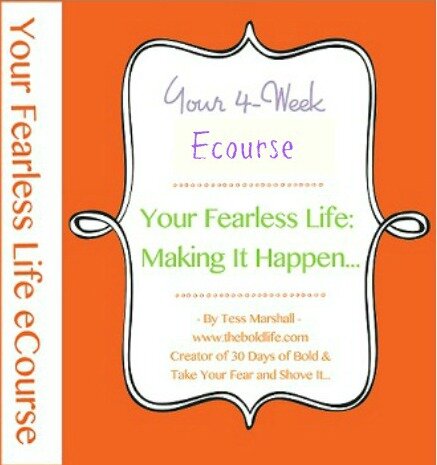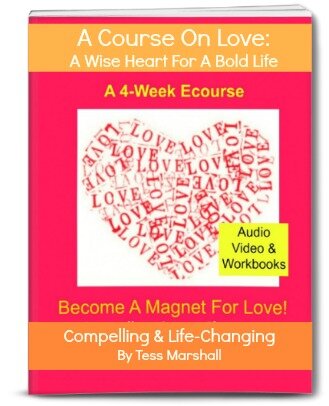Reading and analyzing literature is not only a fulfilling pastime but also an academic pursuit that teaches us about culture, society, and humanity. Whether you are a literature student or simply an avid reader, finding the right essay topic can make all the difference in your writing process. With so many literary genres, forms, and themes to choose from, selecting a suitable essay topic can be overwhelming.
In this blog post, we have compiled a list of essay topics in ten different categories, ranging from literary theory and criticism to children's and young adult literature. Whether you are interested in exploring the evolution of literary forms and styles, the representation of gender and sexuality in literature, or the process of adapting literature into film, we have got you covered. Each category features twenty unique essay topics that will inspire you to delve deeper into the world of literature and produce thoughtful, insightful writing.
We hope that this comprehensive list of essay topics will serve as a useful resource for literature students, educators, and enthusiasts alike. Whether you are looking for inspiration for your next essay assignment or simply seeking to expand your literary knowledge, these essay topics will guide you towards a deeper understanding of the rich and diverse world of literature.
Genre Studies
Genre Studies: Genre studies refer to the analysis and interpretation of literary works based on their categorization into specific genres, such as poetry, drama, fiction, or non-fiction. This field of study examines the conventions, themes, motifs, and techniques of each genre, as well as the historical and cultural context in which they were produced.
- The evolution of the detective genre: from Sherlock Holmes to modern-day crime thrillers.
- Gothic literature and its role in exploring societal taboos.
- The emergence of dystopian literature in the 20th century.
- The evolution of the romance genre in modern literature.
- The role of horror literature in reflecting cultural fears and anxieties.
- The origins and evolution of the science fiction genre.
- The rise of young adult fiction: exploring the genre's appeal and cultural significance.
- The emergence of speculative fiction in contemporary literature.
- The history and development of the western genre.
- The role of comedy in modern literature: analyzing its forms and functions.
Literary Criticism and Theory
Literary Criticism and Theory: Literary criticism and theory involve the study and evaluation of literature from a critical perspective. This field of study examines the elements that make up a literary work, such as language, style, structure, and symbolism, and considers the ways in which these elements contribute to meaning and interpretation.
- The relevance of Marxist literary theory in contemporary literary studies.
- The intersection of feminism and literary theory: analyzing its impact on the study of literature.
- The role of postcolonial theory in analyzing literature from non-western cultures.
- The significance of psychoanalytic literary criticism in understanding character motivation.
- The application of queer theory in analyzing LGBTQ+ literature.
- The limitations and potential of formalism in literary studies.
- The relationship between reader-response theory and the interpretation of literature.
- The implications of new historicism in the study of literature.
- The challenges of applying structuralism in literary studies.
- The potential of ecocriticism in analyzing the representation of nature in literature.
Author Studies
Author Studies: Author studies focus on the life and works of a specific author, examining their literary style, themes, and contributions to literature. This field of study also considers the cultural and historical context in which the author lived and worked, as well as their impact on the literary canon.
- The life and works of Virginia Woolf: analyzing her contribution to modern literature.
- The significance of James Baldwin's literature in African American culture.
- The feminist perspective in the works of Sylvia Plath.
- The life and works of Gabriel Garcia Marquez: exploring his literary legacy.
- The literary achievements of Maya Angelou: analyzing her impact on modern literature.
- The impact of Ernest Hemingway's writing on the modernist movement.
- The cultural significance of Toni Morrison's novels.
- The role of Edgar Allan Poe in shaping the horror genre.
- The literary achievements of Margaret Atwood: analyzing her feminist perspective.
- The influence of F. Scott Fitzgerald's writing on the Jazz Age.
Comparative Literature
Comparative Literature: Comparative literature involves the study of literary works from different cultures, languages, and time periods. This field of study seeks to identify similarities and differences between works from different traditions, exploring the ways in which literature reflects and shapes cultural and societal values.
- The similarities and differences between Russian and American literature.
- The comparative analysis of postcolonial literature from India and Africa.
- The influence of ancient Greek literature on modern literature.
- The literary traditions of Latin America and Spain: a comparative study.
- The comparison of contemporary Japanese and Chinese literature.
- The literary connections between French and English literature.
- The comparative analysis of African American and Native American literature.
- The similarities and differences between English and Scottish literature.
- The comparison of Italian and Spanish literature.
- The literary traditions of South Asia and Southeast Asia: a comparative study.
Literary History
Literary History: Literary history is the study of the development and evolution of literature over time, focusing on key movements, genres, and authors. This field of study considers the historical and cultural context in which literary works were produced, as well as the social and political forces that shaped literary production and reception.
- The literary movements of the Victorian era: exploring their impact on modern literature.
- The historical context of the Harlem Renaissance: analyzing its cultural significance.
- The literary traditions of the Romantic era: analyzing their influence on modern literature.
- The literary and cultural impact of the Beat Generation.
- The literary developments of the Elizabethan era: exploring their contribution to modern literature.
- The cultural and literary impact of the Civil Rights Movement.
- The historical context of the Modernist movement: analyzing its significance in literature.
- The literary developments of the Enlightenment era: analyzing their impact on modern literature.
- The literary and cultural impact of the counterculture movement of the 1960s.
- The literary traditions of the Renaissance.
Literary Form and Style
Literary Form and Style: Literary form and style refer to the ways in which literary works are structured, including the use of language, tone, and genre. This field of study analyzes the formal and stylistic elements of literary works, examining how they contribute to the overall meaning and impact of a text.
- The use of magical realism in contemporary literature.
- The significance of stream of consciousness writing in modernist literature.
- The evolution of the sonnet form in poetry.
- The use of satire as a literary form to comment on contemporary society.
- The role of allegory in literature: analyzing its forms and functions.
- The significance of the short story form in modern literature.
- The use of symbolism in literature: analyzing its forms and functions.
- The evolution of the novel form in modern literature.
- The significance of free verse poetry in contemporary literature.
- The use of epistolary form in literature: analyzing its forms and functions.
Literary Themes and Motifs
Literary Themes and Motifs: Literary themes and motifs are recurring ideas, subjects, and symbols that appear throughout a literary work. This field of study explores the deeper meanings and messages that these themes and motifs convey, as well as their significance within the broader cultural and historical context of a work.
- The representation of love and romance in literature: analyzing its forms and functions.
- The exploration of identity in literature: analyzing its forms and functions.
- The representation of death and mortality in literature: analyzing its forms and functions.
- The exploration of power and control in literature: analyzing its forms and functions.
- The significance of nature and the environment in literature.
- The representation of war and conflict in literature: analyzing its forms and functions.
- The exploration of race and ethnicity in literature: analyzing its forms and functions.
- The representation of gender and sexuality in literature: analyzing its forms and functions.
- The significance of memory and nostalgia in literature.
- The representation of religion and spirituality in literature: analyzing its forms and functions.
Adaptation Studies
Adaptation Studies: Adaptation studies involve the analysis and interpretation of literary works that have been adapted into different media, such as film, television, or theater. This field of study examines the ways in which the adaptation process affects the meaning and interpretation of a work, as well as the cultural and social context in which the adaptation was produced.
- The process of adapting literature into film: analyzing its forms and functions.
- The significance of adaptation in modern theater.
- The adaptation of classic literature for young adult audiences.
- The representation of literary characters in popular culture adaptations.
- The adaptation of graphic novels into film and television.
- The process of adapting non-fiction literature into film and television.
- The significance of adaptation in the video game industry.
- The adaptation of foreign language literature into English.
- The representation of Shakespeare in contemporary film adaptations.
- The adaptation of science fiction and fantasy literature into film and television.
Children's and Young Adult Literature
Children's and Young Adult Literature: Children's and young adult literature is a genre of literature that is written specifically for younger readers. This field of study examines the unique themes, styles, and techniques used in children's and young adult literature, as well as the impact that these works have on the development of young readers.
- The representation of adolescence in young adult literature.
- The role of children's literature in shaping young minds.
- The representation of gender and sexuality in children's literature.
- The exploration of cultural diversity in children's literature.
- The significance of fairy tales in children's literature.
- The representation of disability in children's literature.
- The use of humor in children's literature: analyzing its forms and functions.
- The representation of family dynamics in children's literature.
- The exploration of mental health in young adult literature.
- The representation of social issues in young adult literature.
Popular Literature
Popular Literature: Popular literature refers to literary works that are widely read and enjoyed by the general public, as opposed to works that are considered highbrow or literary. This field of study explores the themes, styles, and techniques used in popular literature, as well as the cultural and societal factors that contribute to the popularity of certain works.
- The cultural significance of comic books and graphic novels.
- The representation of romance in popular literature.
- The significance of true crime literature in contemporary culture.
- The representation of politics and government in popular literature.
- The exploration of celebrity culture in popular literature.
- The significance of self-help literature in modern society.
- The representation of horror in popular literature.
- The significance of mystery and suspense literature in contemporary culture.
- The representation of sports in popular literature.
- The representation of science and technology in popular literature.
In conclusion, exploring the different categories of literature can be an enriching experience that offers valuable insights into the human experience. This blog post has presented a wide range of essay topics across ten different categories, offering readers a variety of options to explore and write about. From literary history to genre studies, literary form and style to adaptation studies, the topics provided here are designed to inspire and challenge writers at all levels.
By engaging with these essay topics, literature students can develop their analytical and critical thinking skills, deepen their understanding of different literary genres, and learn to express their ideas more effectively in writing. For educators, these essay topics can be used as prompts to encourage students to think creatively and independently about literary themes, motifs, and forms. For readers of all levels, these topics offer a starting point for exploring the rich and diverse world of literature.
We hope that this blog post has provided valuable inspiration for your next essay assignment or reading project. Remember to choose a topic that interests you, conduct thorough research, and organize your ideas effectively to produce a well-written and thought-provoking essay. With the right topic and approach, you can unlock the true potential of literature and discover new perspectives on the world around us.







